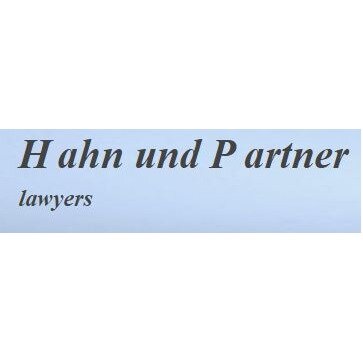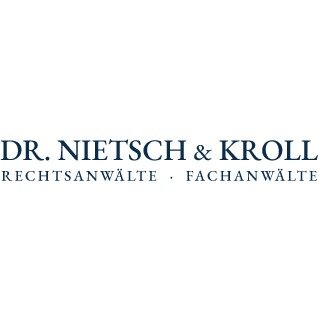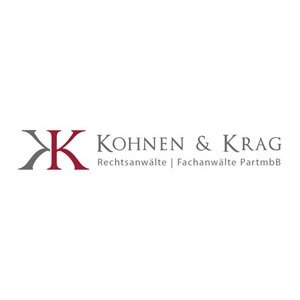Best Real Estate Lawyers in Hamburg
Share your needs with us, get contacted by law firms.
Free. Takes 2 min.
Free Guide to Hiring a Real Estate Lawyer
List of the best lawyers in Hamburg, Germany
About Real Estate Law in Hamburg, Germany
Real Estate law in Hamburg, Germany, encompasses a broad range of legal responsibilities and rights for property owners, tenants, buyers, and sellers. As one of Germany's largest and most dynamic cities, Hamburg's real estate market is robust, featuring a blend of residential, commercial, and industrial properties. Property transactions, rental agreements, development projects, and property management in Hamburg are governed by a combination of federal and state laws. Due to the complexity and the high-value nature of real estate transactions, it is crucial for stakeholders to have a clear understanding of these legal frameworks.
Why You May Need a Lawyer
There are several scenarios where engaging a real estate lawyer in Hamburg may be necessary:
- Property Transactions: Whether buying or selling property, a lawyer can ensure that the transaction complies with legal requirements, review contracts, and handle negotiations.
- Lease Agreements: A lawyer can assist in drafting or reviewing lease agreements, ensuring they are fair and comply with local regulations.
- Dispute Resolution: Legal assistance may be required to resolve disputes between landlords and tenants, or among property owners.
- Development and Zoning Issues: Lawyers can navigate complex zoning laws and regulations for property development.
- Property Rights and Inheritance: A lawyer can help clarify property rights, especially in cases involving inheritance or transfer of property due to familial circumstances.
Local Laws Overview
Key aspects of local laws pertinent to real estate in Hamburg include:
- Tenancy Protection: German law, including statutes specific to Hamburg, provides significant protections for tenants, regulating rent increases, lease terminations, and living conditions.
- Land Register System: Property transactions must be registered in the Grundbuch (land register), ensuring transparency and legal security in buying or selling property.
- Building Regulations: Hamburg has specific building codes and planning permissions required for any construction or renovation, dictating standards for safety and environmental impact.
- Property Taxation: Real estate transactions and ownership in Hamburg are subject to local and federal taxation laws, including the transfer tax (Grunderwerbsteuer).
Frequently Asked Questions
How do I find out if a property in Hamburg is legally available for purchase?
The legal status of property can be confirmed through the Grundbuch (land register), which contains all legally binding information about the property.
What should be included in a lease agreement in Hamburg?
A lease should include the rental rate, duration, deposit details, maintenance responsibilities, and conditions for termination, in compliance with local tenancy laws.
Can a landlord increase the rent at any time?
No, rent increases are regulated. They must be justifiable, follow proper notice periods, and comply with the Mietpreisbremse (rent control regulations) applicable in Hamburg.
Are property inspections required before purchase?
While not legally required, it is highly recommended to have a thorough inspection to assess the property's condition before completing a purchase.
What are the consequences of breaching a lease agreement?
Consequences may include financial penalties, eviction, or legal proceedings. It is crucial to adhere closely to all terms outlined in the lease agreement.
How can disputes between tenants and landlords be resolved?
Disputes may be resolved through mediation, local tenant associations, or ultimately legal action in the courts if other methods fail.
What permits are necessary for renovating a property?
Renovations may require building permits from the local authorities, especially if they change the building's structure or usage.
How is property tax calculated in Hamburg?
Property tax is generally calculated based on the assessed property value and the federal government’s standardized tax rate.
Can foreigners buy property in Hamburg?
Yes, there are no restrictions on foreign citizens purchasing property in Hamburg. It is important, however, to comply with all local laws regarding property purchase.
What is the role of a notary in real estate transactions?
A notary is required to authenticate the sale contract in Germany, adding an official layer of legal security to property transactions.
Additional Resources
For more information or assistance, consider consulting the following resources:
- Hamburg Chamber of Notaries: Offers guidance on notarial processes in real estate transactions.
- Local Tenant's Associations (Mieterverein): Provides support and advice for tenant rights and issues.
- Federal Ministry of Justice and Consumer Protection: Information on federal real estate laws and tenant rights.
- City of Hamburg Website: Contains details on permits, taxes, and local regulations.
Next Steps
If you require legal assistance in the realm of real estate in Hamburg, consider the following steps:
- Consult an Expert: Seek a consultation with a real estate lawyer familiar with local laws and regulations.
- Gather Necessary Documents: Accumulate all relevant paperwork, such as property deeds, lease agreements, and correspondence, to assist in your consultation.
- Explore Mediation Services: If applicable, consider professional mediation to resolve disputes amicably.
- Leverage Local Resources: Utilize local tenant associations or real estate advisors for additional support and guidance.
Lawzana helps you find the best lawyers and law firms in Hamburg through a curated and pre-screened list of qualified legal professionals. Our platform offers rankings and detailed profiles of attorneys and law firms, allowing you to compare based on practice areas, including Real Estate, experience, and client feedback.
Each profile includes a description of the firm's areas of practice, client reviews, team members and partners, year of establishment, spoken languages, office locations, contact information, social media presence, and any published articles or resources. Most firms on our platform speak English and are experienced in both local and international legal matters.
Get a quote from top-rated law firms in Hamburg, Germany — quickly, securely, and without unnecessary hassle.
Disclaimer:
The information provided on this page is for general informational purposes only and does not constitute legal advice. While we strive to ensure the accuracy and relevance of the content, legal information may change over time, and interpretations of the law can vary. You should always consult with a qualified legal professional for advice specific to your situation.
We disclaim all liability for actions taken or not taken based on the content of this page. If you believe any information is incorrect or outdated, please contact us, and we will review and update it where appropriate.
Browse real estate law firms by service in Hamburg, Germany
Hamburg, Germany Attorneys in related practice areas.

















